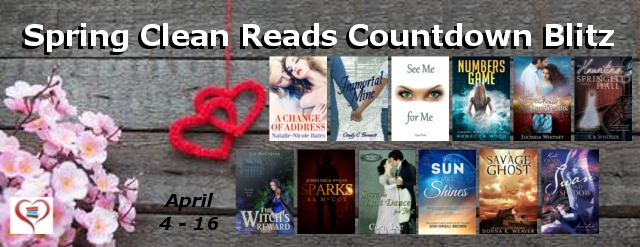 Eighteen-year-old Lucy doesn’t know why she’s haunting Springett Hall in Victorian England. All she remembers of her life is that she was trying to fix a terrible mistake. Now, a necromancer’s plans threaten everyone in the house–living and dead–and her only hope of stopping him is enlisting the help of a servant named Philip–the one living person who can see her. But as Lucy delves into the mystery surrounding her death, she realizes Philip may have secrets of his own.
Eighteen-year-old Lucy doesn’t know why she’s haunting Springett Hall in Victorian England. All she remembers of her life is that she was trying to fix a terrible mistake. Now, a necromancer’s plans threaten everyone in the house–living and dead–and her only hope of stopping him is enlisting the help of a servant named Philip–the one living person who can see her. But as Lucy delves into the mystery surrounding her death, she realizes Philip may have secrets of his own.
E.B. Wheeler grew up in Georgia and California. She attended BYU, majoring in history with an English minor, and earned graduate degrees in history and landscape architecture from Utah State University. She’s the award-winning author of THE HAUNTING OF SPRINGETT HALL and BORN TO TREASON (May 2016), as well as several short stories, magazine articles, and scripts for educational software programs. She lives in the mountains of Utah with her husband, daughters, various pets, and as many antique roses as she can cram into her yard. If she had spare time, she would spend it playing harp and hammered dulcimer, gardening, hiking, shooting archery, knitting, and reading.
Q & A the Author:
1. What is the thing you struggle with the most while writing? And how do you defeat it?
Sometimes when I’m writing, I hit the, “Why am I doing this? This is the worst drivel ever set to paper,” mindset. It usually happens when I crash into a plot hole or some difficult part of the character’s development. It’s really hard for me to slog through it. That’s what I do, though: I slog through it. I set time aside for writing every day, and I make myself write at least a little even when I don’t feel like it. I find when I keep writing, I get new ideas, I get excited about the story again, and then I’m back on my writing high.
2. Which of your personality traits did you write into you characters? (Deliberately or accidentally)
I think we all put more of ourselves into our writing than we realize. My characters may have picked up more of my insecurities than I would like. I did intentionally use my own experiences with a disability to influence how Lucy, the main character, reacts to being helpless in her disembodied state.


Check out all the great blogs that are a part of this event by following along on the Facebook page.








